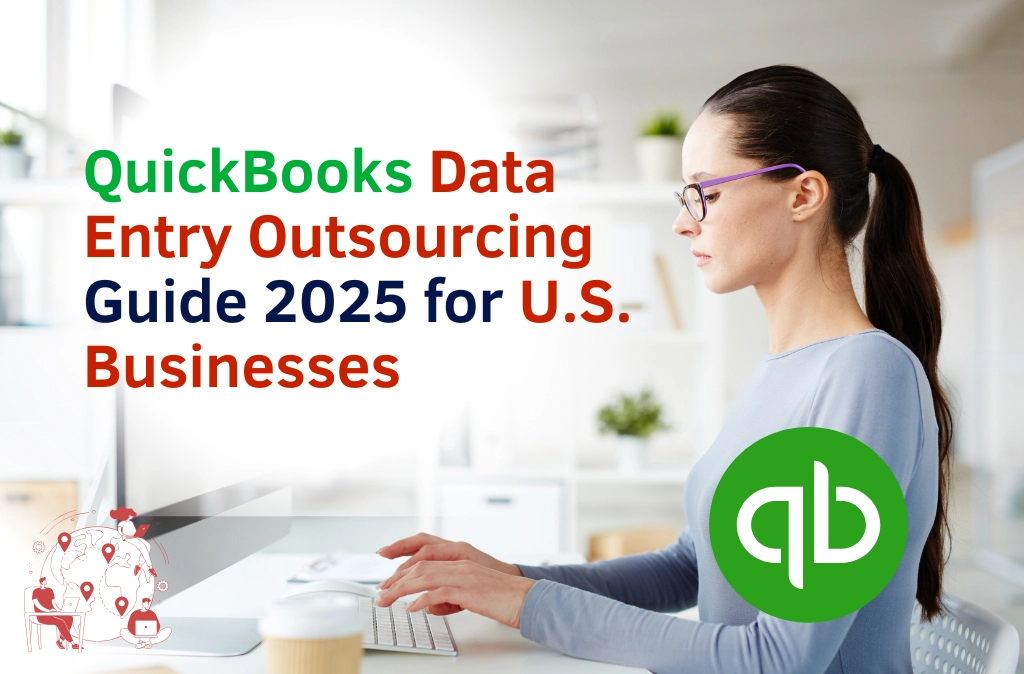
QuickBooks Data Entry Outsourcing Guide 2025 for U.S. Businesses
Small businesses make up over 98% of all employers across the U.S., Canada, and the UK and provide 36% of all U.S. jobs, according to the Intuit QuickBooks Small Business Index Annual Report 2023.
Despite their importance to the economy, they’re also vulnerable to rising costs and operational strain.
The same report also noted that monthly credit card payments by small businesses are now 26% higher than pre-pandemic levels. Many owners are still self-funding operations or working second jobs, leaving little time or budget for back-office tasks.
That’s where QuickBooks data entry becomes a hidden problem. Logging expenses, reconciling bank feeds, and categorizing income, all these tasks are essential but also tedious and error-prone.
To save time, reduce mistakes, and avoid the cost of in-house hires, some of these U.S. businesses have started QuickBooks data entry outsourcing to virtual assistants and remote teams.
In this guide, we’ll walk you through everything you need to know about outsourcing QuickBooks data entry in 2025. You’ll get to know about what tasks to delegate, what to expect, how QuickBooks Data Entry VAs can help, and how to find the right partner for your needs.
Let’s get started!
What Do We Mean By QuickBooks Data Entry Outsourcing?
“QuickBooks data entry outsource” simply means handing off routine bookkeeping tasks to external professionals, who are either individuals or service providers. This means your internal team doesn’t have to handle these tasks manually.
These tasks often include:
- Entering customer invoices and supplier purchase orders.
- Logging receipts, bills, and expenses.
- Reconciling bank and credit card transactions.
- Categorizing income and expenses.
- Updating vendor and client records in QuickBooks.
- Maintaining audit trails and backup documentation.
The outsourcing provider uses secure remote access or cloud-based tools to work directly within your QuickBooks environment, no matter if it’s QuickBooks Online or Desktop. Their job isn’t to “do your accounting” but to keep your day-to-day entries clean, updated, and organized.
You can get support with QuickBooks data entry with structure models like hourly hire, monthly-rolling contracts, project-based setups, or dedicated full-time offshore resources. These options give you control and consistency without the hassle of managing freelancers or part-time workers.
7 Benefits of Outsourcing QuickBooks Data Entry
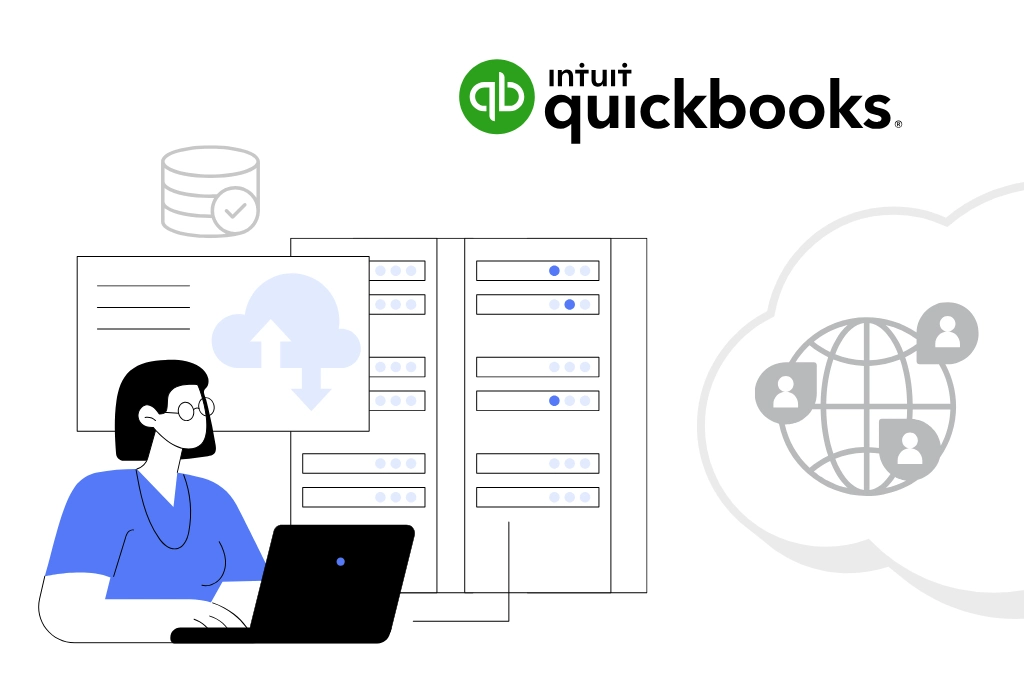
Outsourcing your QuickBooks data entry isn’t only about saving time, but it also strengthens the way your business runs. Here are seven key benefits that U.S. companies (big or small) see when they partner with a reliable provider for QuickBooks data services:
1. Improved Data Accuracy & Fewer Errors
Data entry mistakes throw off reports, delay tax filings, and trigger compliance issues.
When you outsource QuickBooks data entry, trained specialists handle your records with precision. These VAs will verify figures, follow platform-specific rules, and flag inconsistencies in real-time. Most teams use two-step checks or reconciliation tools to catch and correct errors before they affect your books.
With QuickBooks outsourcing, you avoid common input mistakes and keep cleaner financial records that make reporting, audits, and forecasting far more reliable.
2. Access to Experienced Professionals
Outsourcing gives you immediate access to professionals who work with QuickBooks every day.
These specialists understand the platform’s structure, common errors, and best practices. Also, they are already familiar with how to handle reconciliations, categorize transactions, and manage recurring entries.
Instead of spending time training in-house staff, you skip the learning curve with data entry outsourced and get someone you can rely on. Being already fluent in QuickBooks workflows and bringing experience from similar industries and use cases, they know how to work efficiently from day one.
3. Flexible Engagement Models
You can outsource QuickBooks data services in a way that fits your workload.
Whether you need help a few hours a week or a full-time dedicated resource, you can scale support without the cost or complexity of hiring in-house. Hourly, monthly, project-based, or long-term, these flexible models help you adjust as your business grows.
If your business also needs help handling physical documents or older files, some providers combine QuickBooks support with full data entry and digitization services, so you can manage everything through one team.
4. Better Business Decision-Making
When your QuickBooks data is up-to-date and accurate, you can spot trends, catch cash flow issues early, and plan with confidence.
Outsourced teams keep your records updated consistently, so you always know your exact cash position, which invoices are overdue, and where you’re overspending. This makes it easier to adjust budgets, plan ahead, and avoid surprises without digging through spreadsheets or waiting for someone to “catch up the books.”
5. Enhanced Data Security
Outsourcing to a trusted provider improves how your financial data is handled and stored.
Instead of sending spreadsheets over email or storing files on local devices, providers use encrypted access, secured servers, and permission-based logins. Most also sign NDAs, maintain audit trails, and perform regular backups.
These measures reduce the risk of data leaks, unauthorized access, and accidental loss, especially compared to ad hoc in-house processes with limited IT security controls.
6. Easier Tax Preparation & Audits
Outsourced QuickBooks teams keep your data consistently coded, documented, and reconciled, so when tax season arrives, your records are already in order.
You can generate clean profit and loss reports, export supporting documents, and share everything with your accountant without scrambling. If you’re migrating from another system, providers offering data conversion outsourcing ensure that your older records are properly transferred into QuickBooks.
This setup reduces last-minute stress and helps you stay prepared for audits or financial reviews.
7. Improved Work-Life Balance
QuickBooks data entry is repetitive, time-sensitive, and hard to delegate without clear processes.
When you outsource it, you offload daily tasks like logging expenses, matching bank feeds, or tracking receipts, and you free up hours each week. Business owners can focus on operations, while internal staff avoids burnout from backlog and cleanup work. With dependable support handling the day-to-day, your team gains breathing room, and you avoid the constant stress of falling behind on financial tasks.
What’s the Role of a Virtual Assistant in QuickBooks Data Entry?
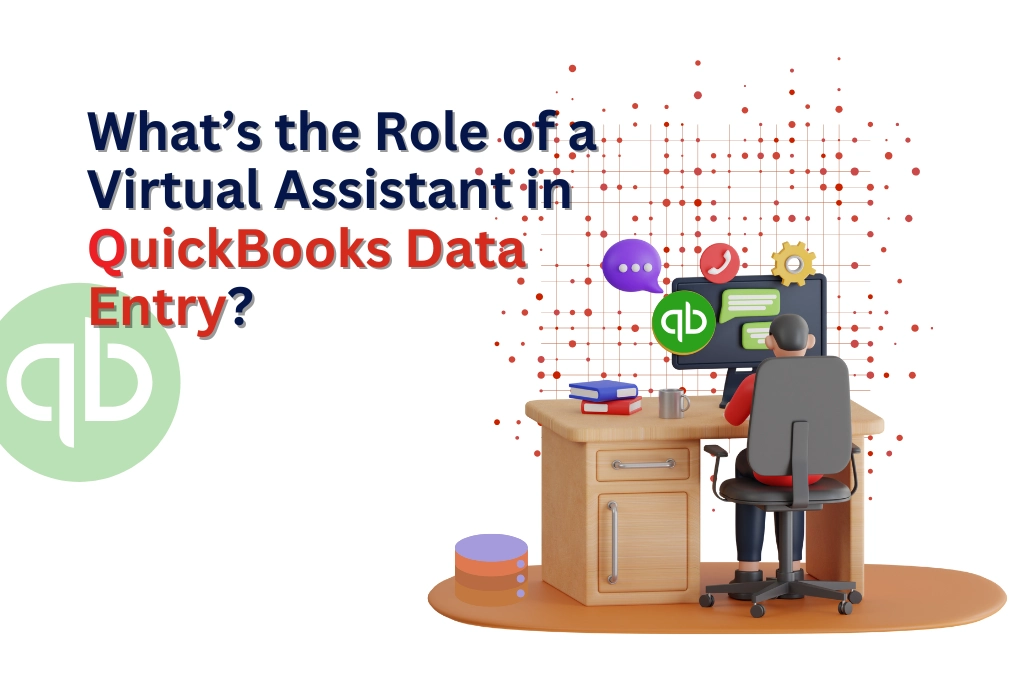
A virtual assistant with QuickBooks experience can take over daily basic bookkeeping tasks like entering invoices, logging expenses, categorizing transactions, and updating customer or vendor records.
These jobs usually don’t need a certified bookkeeper, but they do need someone reliable, consistent, and comfortable working in QuickBooks every day.
For example, a VA can manage:
- Daily expense tracking
- Bank feed matching
- Invoice entry and status updates
- Receipt uploads and tagging
- Preparing reports for your accountant’s review
However, it’s also important to know that these VAs can assist you with data entry on QuickBooks, not technical accounting stuff. Thus, the following things don’t fall in their work role:
- Preparing adjusting journal entries.
- Handling tax filings.
- Offering financial analysis or forecasting.
- Taking accounting decisions without oversight.
While virtual assistants focus on recurring financial data entry and administrative support, data entry specialists bring similar skills but often work within structured teams or specific software platforms.
Bookkeepers, on the other hand, take on more advanced responsibilities, such as reconciling accounts, ensuring compliance, and managing end-to-end bookkeeping processes. Beyond QuickBooks, VAs can also assist with connected admin tasks. They can:
- Collect and organize receipts from staff or vendors
- Follow up on overdue payments via email
- Enter related data into CRMs or inventory systems
- Prepare spreadsheets for weekly finance reviews
This dual role of financial and administrative assistance makes a virtual assistant a cost-effective choice for small businesses that need reliable support without adding to payroll.
Ask These Questions Before Outsourcing Your QuickBooks Data Entry Tasks
Choosing the right QuickBooks data entry partner is about reliability, accuracy, and fit, not just cost. Before you commit, ask these questions to make sure you’re covered:
- Which QuickBooks data entry services do you actually provide?
Some providers only handle basic transaction logging, while others go further with reconciliations, reporting, and categorization. Have clarity about which one is the best option for your organization.
- How do you maintain accuracy?
Look for clear answers on double-checking, audits, or quality control tools. Don’t settle for “We’re careful.” Ask technical questions, if needed.
- Are you experienced with both QuickBooks Online and Desktop?
Version matters, so make sure they know your setup inside out. If you are hiring a full-time VA, choose an outsourcing partner, as they can find you a talent with the software specialty you are looking for.
- What security measures do you follow?
Encryption, secure access, audit trails, NDAs, and ISO certifications are the norm. Ask what’s in place, and don’t settle for less. Also, inquire whether they are familiar with best practices for securing QuickBooks data.
- Can you scale when my workload spikes?
Tax season, funding rounds, audits and many other seasonal work come up. See if they can increase support without delays. An outsourcing service provider like Invedus can help you with such seasonal demands.
- What’s your usual turnaround time?
You shouldn’t have to wait days for yesterday’s entries. Get realistic timelines upfront. By hiring a dedicated virtual assistant for QuickBooks data entry, you can completely eliminate this possibility.
- Can you share client references or relevant experience?
A provider who’s worked with businesses like yours will ramp up faster and make fewer mistakes. They won’t hesitate to share case studies of how they’ve previously delivered the same type of work for other clients.
Asking these questions gives you a clearer picture of how a provider works before you hand over your financial data. It also helps you avoid hidden gaps that show up later.
However, we always recommend you partner with an outsourcing company, as they have a structured process trained teams, data security protocols, and the ability to scale support without compromising quality or timelines.
Worth Exploring: Reasons Your Business Needs a QuickBooks ProAdvisor
Is Outsourcing QuickBooks Data Entry Service Right for You?
If your team spends more time entering transactions than making financial decisions, outsourcing your QuickBooks data entry process can help you regain this focus.
Trained professionals handle the repetitive work, which means reduced errors, updated books, and more time for strategy and growth.
For small business owners wearing multiple hats or teams scaling their operations, this kind of support brings consistency to your financial workflow without hiring in-house.
With Invedus, you get more than basic data entry. You gain access to trained virtual assistants and remote accountants who understand how to work within your systems and support your team daily.
If you’re aiming for reliable, scalable, and secure bookkeeping support, outsourcing might be the step that finally clears your backlog and gives you breathing room to move forward with confidence.

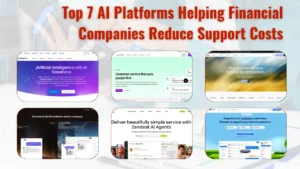
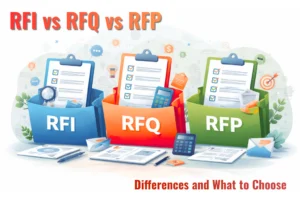

Last updated on: Nov 7, 2025